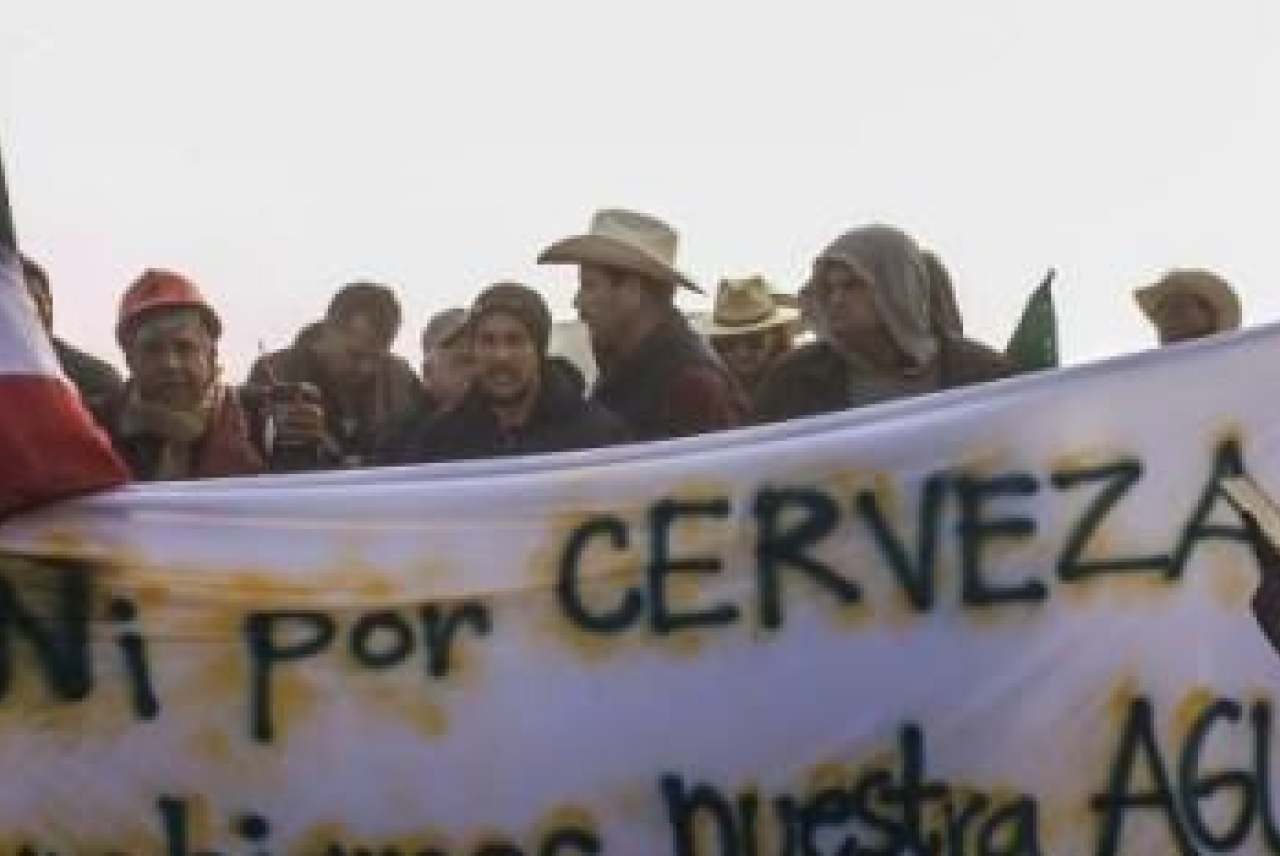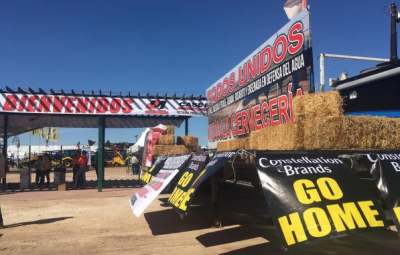Mexicali’s residents have called for a boycott of Constellation Brands, after the company gained access to the region’s drinking-water supply in a series of “shady, undocumented” deals. Constellation’s new beer factory will drain up to 20 million cubic meters of water every year – or 20% of the city’s annual supply.
Water has a significant history in Mexicali. Can you say something about this?
Mexicali was born a little more than 100 years ago in one of the hottest places on Earth, so water is a symbol not only for prosperity or abundance, but life.
The city itself was made possible thanks to the hard work and dedication of very few people to control the Colorado River and use its water and fertile delta into agricultural use.
In this sense, in Mexicali’s symbolist microcosm, water is inseparable from the sole idea of existing. It is almost impossible to survive the hot summers (reaching 125 degrees Fahrenheit) without an adequate water supply.
In addition, the Colorado River is in an undefined period of drought that can last for years.
In January 2017, between 60,000 and 80,000 people marched on government buildings in Mexicali. They were protesting new taxes as well as laws that would allow companies to raise water prices and cut supplies when consumers failed to pay bills within 90 days. Similar protests have taken place all over Mexico, but why do you think that yours has received so much attention?
Although protests erupted all over Mexico, media attention focused on Mexicali’s civil society, I think, because of the size of our marches (more than 150,000 people in total), the non-violent actions that contrasted with other struggles in Mexico, and because Baja California was the first case in Mexico where, only through public and social pressure, a state law privatizing a natural resource and/or common good —in this case, water— was repealed.
Mexicali Resiste was formed spontaneously on January 12th, 2017, by an abrupt rise in taxes and in the cost of living for the average working family. But after this first year together, the movement has transformed into a critical community-based, non-partisan assembly.
Is it difficult to oppose the factory when some believe that it could offer jobs and regeneration for the area?
Almost all the people I have talked with (and I think this is true also for other Mexicali Resiste members) are opposed to the factory. Ironically (or maybe not), the only people who still support the factory are business-oriented folk.
However, the majority of the city and the state is still very badly informed. Except for one Tijuana weekly (ZETA), traditional media does not show the government’s constant contradictions or empty statements. Instead, they reproduce their press releases with no comment or analysis.






